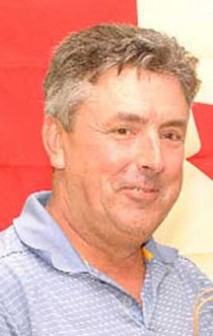Underscores importance of unity
With good management of Guyana’s natural resources, the economy can be developed quickly and while the government has been making efforts, there is still a lot to be done, outgoing Canadian High Commissioner, Francois Montour has said.
“This country has enormous natural resources that if well managed could bring, could increase the economy of this country in a fairly rapidly period. We’re not talking about 50 years, it could be done very quickly,” said Montour in an interview with Stabroek News on Wednesday. “Looking at the great potential that exists, I’m quite hopeful for the future,” he said. Montour said that the government has been making efforts to improve the governance structure in order to facilitate the development and the exploitation of natural resources while also considering the environment. “There’s still a lot to be done for sure and I think the government is conscious about that,” he added.
However, Montour underscored the importance of unity. He said that the question of how the cultural aspect can impact development can make the issue a bit more complex. “It’s certain that if there’s deep division, ethnic divisions in the country which are reflected at the political level, then it may slow down the progress a little bit of the country; it may make it a little bit more difficult to get a social agreement on the long term vision of the country,” he noted.
“It takes time but I think by realizing that you need unity and you need cooperation between the different ethnic groups in the country, when you come to a point where you realize that and then you see that you need this kind of unity to aspire to a better life and to betterment for your children, I think then, things start to change in the society,” he said while also observing that “the politics reflects also the society that exists.”

The diplomat said that there is a responsibility on the part of all Guyanese to educate their children about the importance of being united and cooperation between the different ethnic groups. He stressed that there is greater advantage in working together and he has seen evidence of this in his travels within the country. There is already a change taking place with the youths and the cultural and ethnic barriers have started fading a little bit and that is good for the future, Montour observed.
He also pointed out that the political parties themselves are talking about unity, cooperation and long-term development and this is quite encouraging.
“Everything is there, I’ve seen countries that had a fraction of the resources that are available here in terms of natural resources and riches and with unity with cooperation among… the different ethnic groups in the country; they reached a certain level of development, they’ve achieved some success, so I think here, a lot has been done I think but again for the future and the future children of the country, I think there is an importance… to create the social unity and I’m hopeful that this is gonna take place,” he said.
Meanwhile, in relation to Guyana’s ‘brain drain’ problem, with Canada the destination of choice for many, Montour said that the best thing is to increase the development level and help the country develop the economy. “The reality is that if students coming out of the university here could access good employment in their field of expertise at a reasonable salary so that they can envisage to create a family, to provide education and health care for their family and everything, I don’t think they’ll be that much interested in migrating to Canada or the United States or anywhere for that matter,” he said.
He said that Canada is assisting in development pointing to the assistance to the Caribbean Community (Caricom) as well as scholarships with the proviso that awardees return here to serve. With the government planning a long-term vision for the development of the country, at some point the migration trend will reverse itself, Montour said.
In relation to the issue of local government reform, the diplomat said that the decision on whether or not to hold local government elections is the decision of the government and they are not taking any specific actions to try to get the government to hold these. “Our position is that the local election is part of the Constitution of Guyana and therefore the government should do its utmost and as much [as] possible getting organized and providing resources to do them, but again the difficulties that the government meets and encounters in trying to hold the local election… that needs to be solved and resolved by the government…” he said.
“I believe of course that they should be held because it’s the constitution, when the constitution was written and approved that structure is part of it and there was valid and good reasons which are still valid in my view, so the question now should be passed to government in terms of what prevents the holding of those local elections,” he said.
Canada has not provided any assistance for the preparation of the upcoming elections and has not been asked for financial support. Montour pointed out that the government has said that they have the resources to organize and hold elections. He said that there will not be an official Canadian delegation but there will likely be Canadians in the Organization of American States Electoral Observer mission that will be here to observe general elections.
Canada has been working with the media proprietors association and Montour noted that one of the basic foundations for a democracy is freedom of speech and freedom of the press as well as access to transparent information. This is even more vital during elections, he said. The diplomat said that they are prepared to offer more help to the media associations to assist in trying to guarantee the principle of freedom of the press in Guyana.





